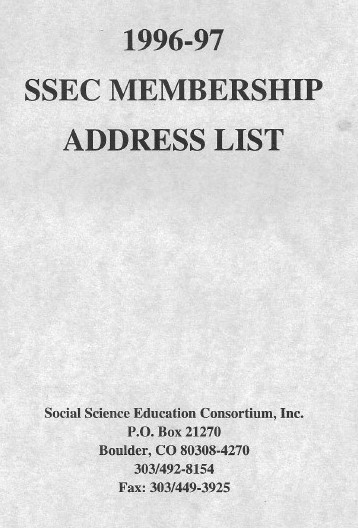HISTORY OF THE SOCIAL SCIENCE EDUCATION CONSORTIUM (SSEC)
Prepared by James E. Davis, Executive Director (2000-2018)
SSEC-History-Timeline.pdf (download the timeline here)
Introduction
The timeline of the Social Science Education Consortium below highlights the history of the organization since its beginning in 1963. The reader will note that most of the entries relate to publications of the organization. (Not all SSEC publications are listed here.) This is because much of the organization’s history is embodied in its publications and most of the SSEC publications were the result of funded projects.
While the SSEC has a mission of improving the teaching of the social sciences in pre-college education, its not-for-profit status demanded that it search for funding related to, but sometimes beyond this mission. The entries here can be organized into nine themes.
- Content and teaching of the social sciences and history
- Educational planning and change
- Ethnic studies
- Law-related/democracy/civic education
- Research in social studies/social science education
- Global/international studies
- Environmental education
- Evaluation in social studies/social science education
- Special social science applications
Timeline


1963 – The Social Science Education Consortium is founded at Purdue University. Founders included Robert Horton, Purdue University; Ronald Lippitt, University of Michigan; Irving Morrissett, Purdue University; Michael Scriven, Indiana University; Lawrence Senesh, Purdue University; and Peter Senn, Northwestern University. Irving Morrissett becomes the first Executive Director of the SSEC. The stated mission of the SSEC: To improve the teaching of the social sciences in pre-college education. At its beginning membership in the SSEC was by invitation only.
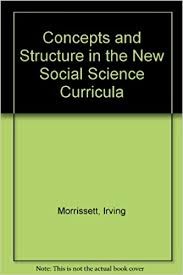
1966 – SSEC publishes Concepts and Structure in the New Social Science Curricula, which becomes a significant publication in the field.
1967 – SSEC moves its offices to Boulder, Colorado, when Irving Morrissett becomes a Professor of Economics at the University of Colorado. Lawrence Senesh soon joins the faculty in the economics department at the University of Colorado at Boulder.
1967 – SSEC publishes Steps in Curriculum Analysis Outline, which later becomes the Curriculum Materials Analysis System.
1968-69 and 1969-70 – SSEC conducts two full-year Experienced Teacher Fellowship Programs for 25 teachers each, resulting in an MA degree in economics from the University of Colorado at Boulder.
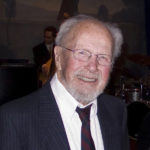
1970 – SSEC is awarded the Educational Resources Information Center (ERIC), an initial three-year, renewable contract by the U.S. Office of Education. The clearinghouse is named ERIC/ChESS (ERIC Clearinghouse for Social Studies/Social Science Education). Nicholas Helburn, former director of the High School Geography Project, becomes the first ERIC/ChESS director.
1970 – The Educational Resources Center is formed to purchase a sorority house at 855 Broadway in Boulder, across the street from the University of Colorado Administrative Offices, to house the offices of the SSEC and other not-for-profit organizations.
1970 – Educational Resources Center (ERC) is formed to purchase sorority house at 855 Broadway in Boulder to house the offices of the SSEC and other not-for-profit education organizations.
1971 – 1980 HIGHLIGHTS
- SSEC receives institutional funding from the National Science Foundation for the following: final development of the Curriculum Materials Analysis System (CMAS), development of the curriculum analysis DATA BOOK, the Teacher Associate Program, and general dissemination about new social science curriculum materials nationwide.
- Month-long summer institutes are conducted on the Anthropology Curriculum Study Project (ACSP), ECON 12 (published as Economics in Society), High School Geography Project (HSGP), and Sociological Resources for the Social Studies (SRSS). All but ECON 12 were National Science Foundation supported. ECON 12 was supported by the U.S. Office of Education.
- The Curriculum Materials Analysis Data Book becomes an ongoing SSEC subscription publication, summarizing many new materials in social studies/social science education.
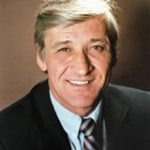
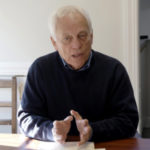
Three social studies teachers per year on sabbatical leave become staff of the SSEC (Teacher Associates) to learn about new ideas and curriculum materials in the social sciences. Two Teacher Associates go on to become presidents of the National Council for the Social Studies: Tedd Levy and C. Frederick Risinger.
- Two-one-week summer institutes are conducted for the Council for State Social Studies Specialists (CS4). Topics included the new social science curriculum materials and planning for change.
- SSEC publishes Planning a Social Studies Program: Activities, Guidelines, and Resources. This 1977 publication was revised in 1983, 1991, and 1998. Became one of SSEC’s best sellers.
- SSEC, ERIC/ChESS, and the National Council for the Social Studies publish Review of Research in Social Studies Education: 1970 – 1975.
- SSEC and ERIC/ChESS jointly publish tips for teaching social science and history series, continuing publications of the ERIC Clearinghouse.
Here is a short list of some of the key scholars SSEC worked with in the 1970s: Fred Newmann and Jim Shaver – Harvard Public Issues Series; Ted Fenton – Carnegie-Mellon History Project; Nicholas Helburn – High School Geography Project; Suzanne Wiggins Helburn – ECON 12; Hilda Taba – Taba Curriculum Project; and Lawrence Senesh – Our Working World.
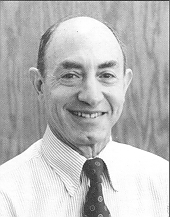
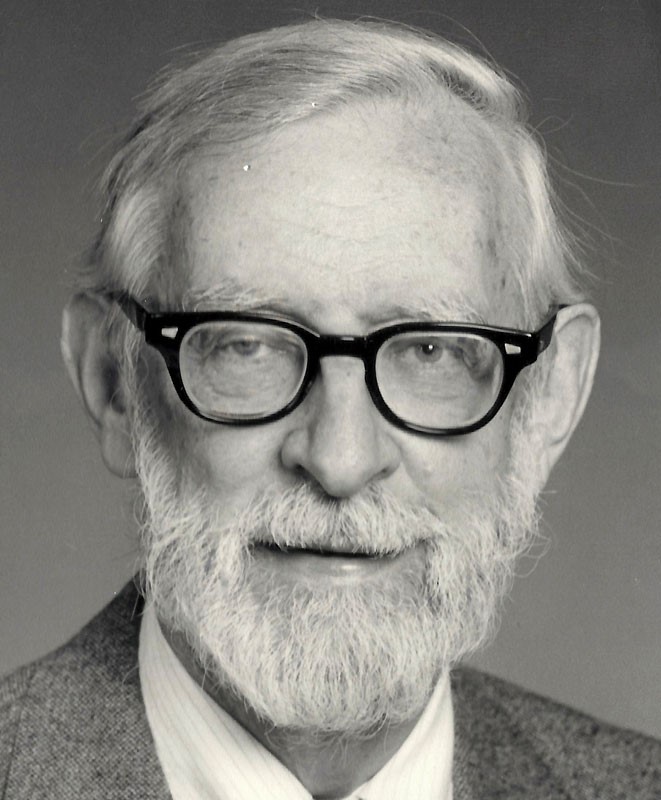
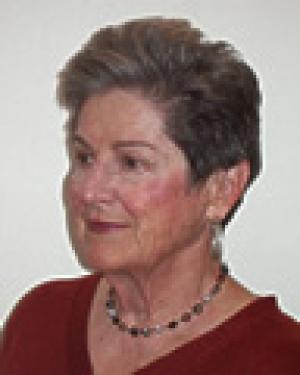
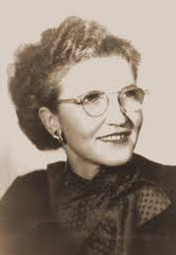
The SSEC could not have been the success it was without its very competent and talented staff. Included are: Frances Haley, general social studies; Sharryl Hawke (now Davis); elementary social studies; Laurel Singleton, editorial; Douglas Superka, values education; Mary Jane Turner, civics and law-related education; and Karen Wiley, political science/editorial.
1981 – 1990 HIGHLIGHTS
- Early in this decade, with National Science Foundation Funding, the SSEC conducts eight, one-week dissemination institutes nationwide on the teaching of the social sciences in pre-college education.
- SSEC conducts Project MAVIS (Materials Adaptations for Visually Impaired Students), a nationwide project using a variety of sourcebooks developed during the project.
- SSEC, ERIC/ChESS, and NCSS jointly publish Review of Research in Social Studies Education: 1976 – 1983.
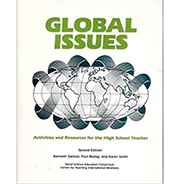
- 1982 – National Science Foundation institutional funding ends; 1985 – ERIC/ChESS contract won by the Social Studies Development Center, Indiana University.
- In collaboration with the Center for Teaching International Relations, University of Denver, SSEC publishes Global Issues: Activities and Resources for the High School Teacher.
- SSEC holds three annual meetings overseas during this decade: two in Germany and one in England.
- James R. Giese, a historian, becomes Executive Director of the SSEC in 1988, replacing SSEC Founding Director Irving Morrissett.
1991 – 2000 HIGHLIGHTS
- SSEC publishes the Public Issues Series, adaptations from the Harvard Social Studies Project.
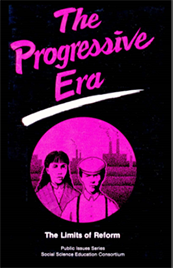
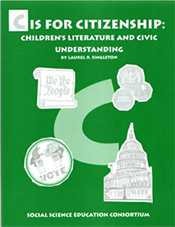
- SSEC publishes resource volumes on children’s literature, to include citizenship, geography, and history.
- SSEC is funded (1993 – 1998) by the National Endowment for the Humanities to conduct summer institutes in history.
- SSEC publishes The Future of Social Studies.
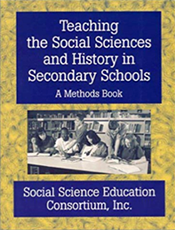
- With National Science Foundation funding, SSEC publishes Teaching the Social Sciences and History in Secondary Schools: A Methods Book. The volume is published by Wadsworth Publishing Company. The text was revised several times (most recently in 2014) and is available from SSEC as an E-Book.
- Based on an NSF-supported series of summer institutes, the SSEC publishes Service Learning in the Middle School Curriculum.
- James E. Davis, past Associate Director of the SSEC, is appointed Executive Director of the organization in 2000.
2001 – 2020 HIGHLIGHTS
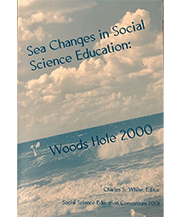
- SSEC publishes two volumes: Social Science on the Frontier: New Horizons in Geography and Sea Changes in the Social Science Education: Woods Hole 2000. The latter volume development was funded by the National Science Foundation.
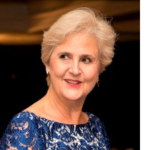
- In July 2 – 6, 2001, Board member Carole Hahn directed the SSEC annual conference at the Harris Manchester College, Oxford, England. The theme was civic education in the United States and United Kingdom.
- In 2003, the SSEC formally affiliates with the National Council for the Social Studies (NCSS). This meant that to join SSEC, members must first join NCSS. Any NCSS member may join SSEC.
- The SSEC office is moved to Lafayette, Colorado, 10 miles east of Boulder.
- Between 2001 and 2003, SSEC collaborates with The American Forum, the Constitutional Rights Foundation (Los Angeles and Chicago), Council of Chief State School Officers, and Street Law, Inc. to conduct the Democracy Education Exchange Project (DEEP), serving 12 former Soviet Bloc countries. The project was funded by the U.S. Department of Education.
- Between 2003 and 2006, the SSEC develops a series of twelve economics investigations, which were published by Junior Achievement Worldwide. Funding was provided by the National Science Foundation.
- Between 2006 and 2009, the SSEC consulted extensively with Colonial Williamsburg on development of its digital American history project, The Idea of America. Also, during this time the SSEC evaluated the Elk Grove, CA Teaching American History Project, funded by the U.S. Department of Education.
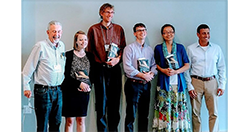
- In 2014, the SSEC began its Young Scholars Program, offering scholarships to young scholars (near dissertation completion or beginning Assistant Professors) to attend the SSEC annual conference and to present a paper for publication.
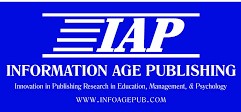
- Beginning with its annual conference in Costa Rica in 2012, the SSEC has had an arrangement with Information Age Publishing (IAP), Charlotte, North Carolina, to publish its annual conference papers.
- In addition to the Costa Rica conference, IAP has published its conference papers from its conferences in Berlin, Germany; Salem, Massachusetts; and Florence, Italy.
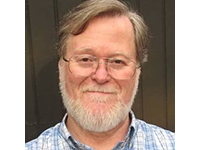
- In addition to the Costa Rica conference, IAP has published SSEC’s conference papers from its conferences in Berlin, Germany; Salem, MA; Florence, Italy, and Charlotte, NC.
- In July 2018, Charles S. White assumes the Executive Director position of SSEC, when James E. Davis steps down from the position. Charlie was formerly SSEC President in 2000 and directed that year’s conference at Woods Hole, MA.
- In 2018, SSEC launches a major effort to extend and update its online presence, including accounts on Twitter and Facebook. In 2018-19, SSEC carries out a major upgrade to the existing web page, with the indispensable help of Julie Hale, our long-time webmaster.
- Beginning in 2019, IAP’s SSEC publications appear under its own imprint: the Social Science Education Consortium Book Series. The first in the series is Democracy at a Crossroads: Reconceptualizing Socio-Political Issues in School and Society (S. and A. Samuels, Editors).
- COVID disrupts conference plans. The pandemic forces us to cancel our 2020 conference in Kyiv (little suspecting that future events would delay a Kyiv conference for the foreseeable future.)
2021 – Present
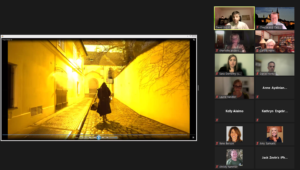
- SSEC responds to the continued COVID pandemic by conducting its 2021 conference virtually and recording each session for later member access. A highlight of the conference was a real-time tour of old Prague, following the route taken by a doctor/guide during a 17th century plague.
- In the fall of 2020, SSEC commits to producing three to four webinars during the academic year to introduce new SSEC books and to address topics of interest to SSEC members and other colleagues. Having made many recordings of virtual conference sessions and these new webinars, SSEC establishes its own YouTube channel in May of 2021, to provide wider access to its growing number of webinars, thanks to the Board’s subcommittee on Outreach.
- SSEC’s first post-COVID face-to-face conference convenes in Dublin, Ireland, in June of 2022. It is a true collaboration between SSEC and Dublin City University, shepherded by SSEC Board Member Amy Allen and DCU’s Anne Marie Kavanagh, Caitriona Ni Cassaithe, and Peter Whelan at the Institute of Education’s Centre for Human Rights and Citizenship Education. It is the largest conference in recent memory with 100 U.S. and Irish participants and a number of spouses and children. A real family affair, enriched by memorable historical and cultural experiences.
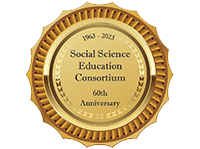
- SSEC turns 60 years old. Established in 1963 at Purdue University and incorporated in 1965, SSEC spent most of its life in Boulder, CO, until moving in 2018 to Massachusetts – still serving its members and contributing to the field at large after six decades.

